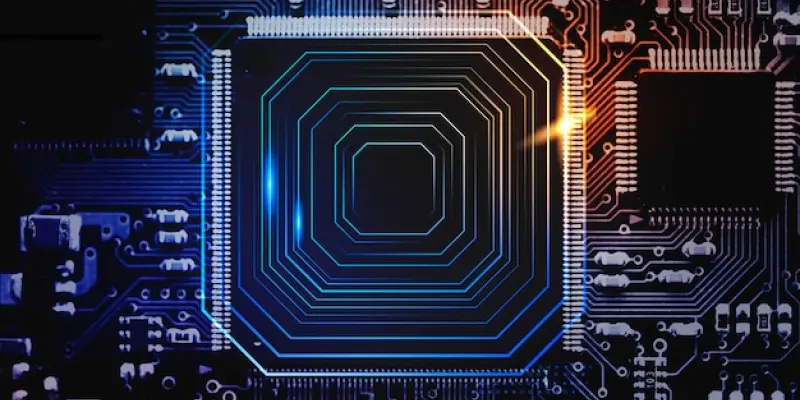In a strategic move signaling a significant shift in the electronics and gaming industry, Nintendo has entered into a partnership with Samsung Electronics for the production of main chips for its highly anticipated Switch 2 console. This collaboration is notable, marking a pivotal moment for Samsung as it strives to compete more aggressively against well-established players in the global chip manufacturing sector. The original Nintendo Switch, launched in 2017, has carved a monumental place in the gaming world, and the forthcoming Switch 2 is aimed to build on this legacy by driving sales north of 20 million units by early 2027. Key to this ambitious sales target is Samsung’s 8-nanometer node technology, which will be used to produce a custom Nvidia-designed processor. With demand for cutting-edge, efficient technology at an all-time high, this partnership underscores the evolving dynamics of the semiconductor market and hints at a future shaped by ever-advancing chip technology.
Samsung’s Strategic Advances in Chip Manufacturing
For Samsung, securing Nintendo’s business represents a strategic victory in its ongoing quest to challenge the dominance of Taiwan Semiconductor Manufacturing Co. (TSMC) in the realm of chip production. TSMC has long held a leading position, bolstered by high-profile clients and their continued reliance on TSMC’s advanced technology. The competition in this space is fierce, with TSMC consistently securing contracts from major industry players like Apple Inc., leaving Samsung in its shadow. Samsung’s position in the industry reflects its commitment to becoming a formidable player by enhancing its manufacturing capabilities and collaborating with key industry partners like Nintendo. This move is not just about supplying chips for a popular gaming console but also represents an escalation of Samsung’s efforts to assert greater influence in the contract chipmaking market. By harnessing advanced production techniques and establishing synergies with companies like Nintendo, Samsung aims to bolster its global reputation and become an equally compelling choice for clients seeking innovation and reliability in chip production.
Furthermore, Samsung’s role in the partnership seeks to leverage its existing connections with Nintendo. Previously involved in supplying NAND flash memory and OLED displays, Samsung has a well-established relationship with Nintendo that is being further deepened through this new venture. As Nintendo gears up for the Switch 2 launch, the support from Samsung will be crucial in ensuring a seamless supply chain and meeting stringent production requirements. This partnership is therefore more than a simple supplier-client arrangement; it speaks to a symbiotic relationship that could drive further advancements and usher in future iterations of gaming consoles featuring Samsung’s cutting-edge technology, including the potential use of OLED panels for next-gen devices.
The Impact of the Nintendo-Samsung Partnership
The alliance between Nintendo and Samsung marks a notable moment in gaming history, especially as Nintendo seeks to rejuvenate its console sales with the Switch 2. The success of this collaboration depends not only on the seamless integration of Samsung’s chip technology but also on Nintendo’s strategic adeptness in handling pre-order shortages and potential tariff challenges. The pre-orders for the Switch 2 have already displayed promising early signs, especially in Japan, hinting at the console’s likely status as a best-seller once released. Initially targeting sales figures that mirrored the debut success of the original Switch, Nintendo now stands on the cusp of potentially exceeding those benchmarks with help from Samsung. Moreover, the partnership with Samsung assists Nintendo in overcoming challenges related to high competition for chip production capacity from TSMC. By teaming up with Samsung, Nintendo navigates around a densely packed supply chain arena, ensuring it can meet elevated production targets. This not only aligns with their immediate release objectives but positions Nintendo strategically for sustained growth in an expanding gaming market. Analysts closely watch this endeavor as a significant case study of collaboration between tech giants, predicting that its outcome could set precedence in how future chipset partnerships are negotiated and executed, potentially influencing market trends and player dynamics.
Looking to the Future
Samsung securing Nintendo’s business marks a strategic win in their challenge against Taiwan Semiconductor Manufacturing Co. (TSMC), a long-standing leader in chip production due to its advanced tech and big-name clients. TSMC often lands deals with major players like Apple Inc., highlighting the fierce competition and leaving Samsung striving for visibility. Samsung aims to strengthen its standing by improving its manufacturing capabilities and teaming with influential partners like Nintendo. This partnership isn’t just about supplying chips for Nintendo’s gaming consoles; it’s a strategic move to boost Samsung’s presence in the contract chipmaking market by showcasing its innovation and reliability. Samsung’s existing relationship with Nintendo, having supplied NAND flash memory and OLED displays in the past, is now evolving as they support Nintendo’s Switch 2 launch. This collaboration underlines a symbiotic relationship, potentially driving advancements for future gaming consoles, including OLED tech innovations, signifying a deeper alliance moving forward.

